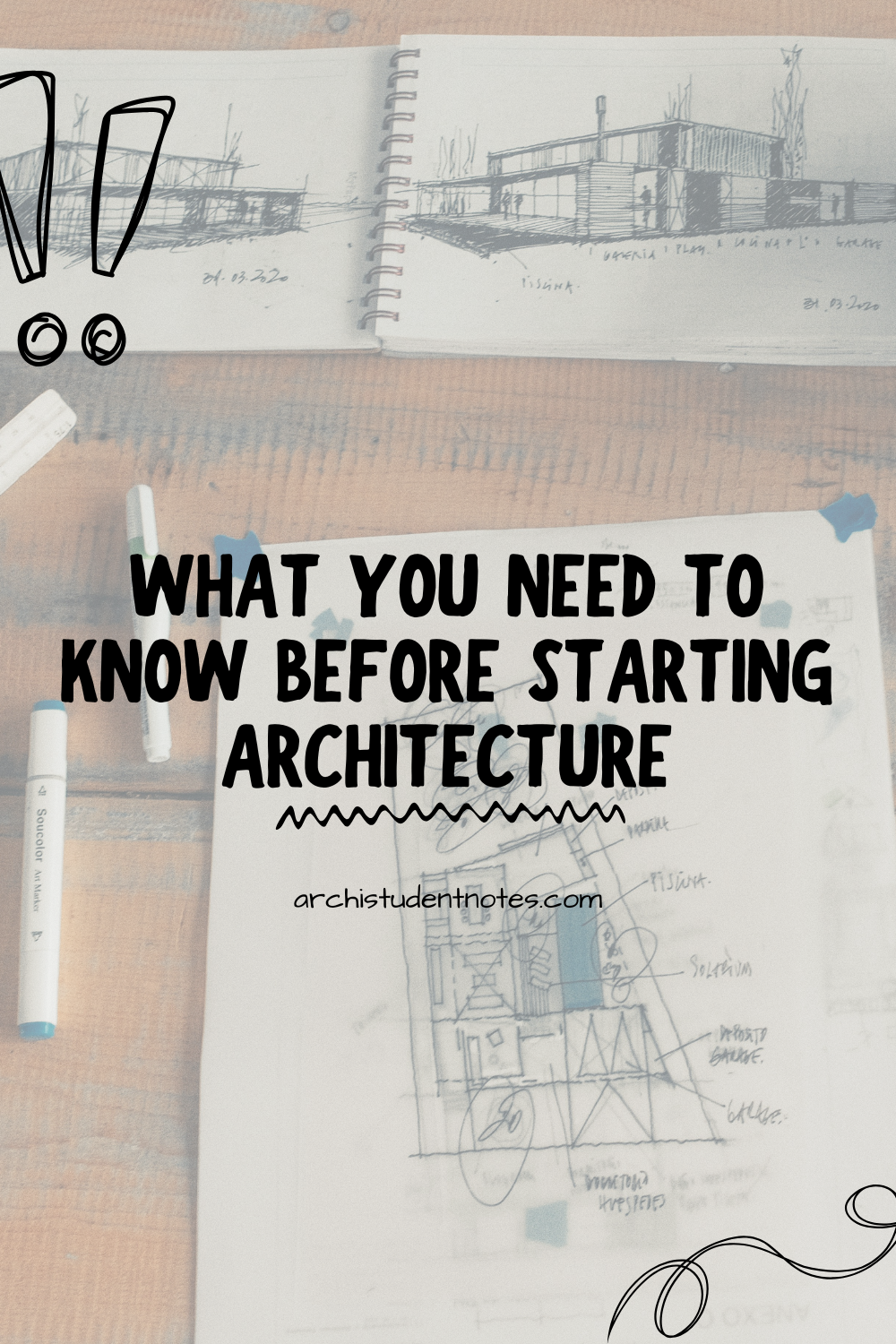What you need to know before you start your architecture degree
It is coming to the end of the summer holidays (Boooo, I know, but be thankful you still have them!) and a lot of you will be starting to prepare for the new academic year whether that is as a first year where everything will be new or as a second or third year, more familiar with the processes and what to expect but perhaps with a few changes on what is expected of you...
In light of the looming academic year I have put together a list of 5 of the most important things I believe you need to do before your first day. All of these things you can look into now, and best of all they are all free! (Yes, travel and explore is a point, but do this within your own budgets! Sketching from your bedroom window is definitely an option!)
These are things I wish I knew as an architecture student and things I still try and incorporate and do prior to any significant change whether that’s moving city, moving jobs or when back when I was student, moving between years.
I hope these are helpful for you as an architecture student, assistant or Architect and if you have any to add, please write them in the comment box right at the bottom of the page. It would be very helpful for everyone else reading this too!
Enjoy! :)
Fully relax
This is first because it is the most important on the list. Prior to starting any degree, your mind being in the right place is important, knowing the challenges of an architecture, I can tell you from experience that you need to take this time to allow yourself to relax. This time will the last before your holidays are full of either thinking about work or doing work or job hunting for at least the duration of your degree.
Do not get me wrong here, this is not to say taking the time to relax during the academic year is impossible..it is just a lot harder and it is better to start as well as you can.
This can come in many forms, seeing friends and family, journaling, picking up a new hobby, travelling (see the next point on the list), its whatever allows you to relax.
Explore and Sketch
Take this time to explore a new place, or even a place you see everyday but have never really appreciated. The important part of this point is to go out, observe and sketch what you see. Both observation and hand drawing are invaluable skills which you will use throughout your architecture degree and into practice. Walk, get on a bus, train, plane, whatever works for you.
These drawings could be used in an early portfolio later down the line, your trip could be an nice talking point in an interview and what you see, whether its architecture, art, colours, shapes - could be used as inspiration for future projects in months and years to come
Community
Studying at home, in different city or abroad, there will be a community of architects that you will benefit from getting to know. This is especially important if you are in the area you wish to work in as a Part 1 architecture student or for holiday placements.
Research the area, check if there are events you can go to where you can network with architects in the area whilst also expanding your knowledge and send emails or event visit local architecture firms to introduce yourself. Learn what kind of work they do, how they do it and then keep in contact.
The architecture job market is hard, especially for Part 1 assistants and holiday placements. You will give yourself a significant advantage if you are already known to a local practice compared to someone who isn’t.
Precedents
If you don’t yet know, precedents are examples or case studies of different pieces of architecture. You will use them throughout your education and career when looking for inspiration for a project or just as a way to learn about how a building was designed or delivered on site, the budget, the materials… there is a lot to learn from different projects.
At this stage it is beneficial to just browse and in the same way of exploring and sketching, this is more of a table top exercise to get more architecture exposure.
Easy websites that I used are Archdaily, Dezeen & Architects Journal. You can also just google keywords and see what pops up! Take the opportunity to build up a library of what you find interesting and explore your own interests and personal style as a designer.
Prepare for the course
The last item on the list, get ready for the course. If you are a first year I would recommend you get as much background information as you can about the course, its structure, how its run and if you can, who will be teaching you. This head start will allow you to then focus on the teaching in your first few days and weeks, rather than the background basics. (Though you will have inductions and introductions to the course).
In addition to general preparations, this is an excellent time to get ahead of reading lists. A generic reading list might be sent to you ahead of your first day or more specific reading lists will be sent ahead of your first project once you have started the course.
If you have received a list, or you wish to expand your knowledge add to the list you may have already recieved, check out this ArchiNote. This post is selection of books I would highly recommend you read or are aware of prior to your first day but are also really useful to refer to throughout your architecture education and career.
Thanks for reading! I hope this post helped you in way you needed it to!
If you’d like more guidance, I offer 1:1 tutorials available here or you have a question or a topic you’d like me to cover, drop me a message or fill out the form below - I’d be happy to write a blog post or create a resource to help you out!
















